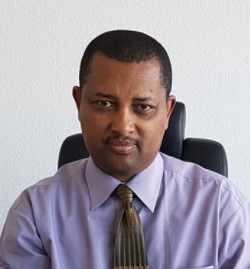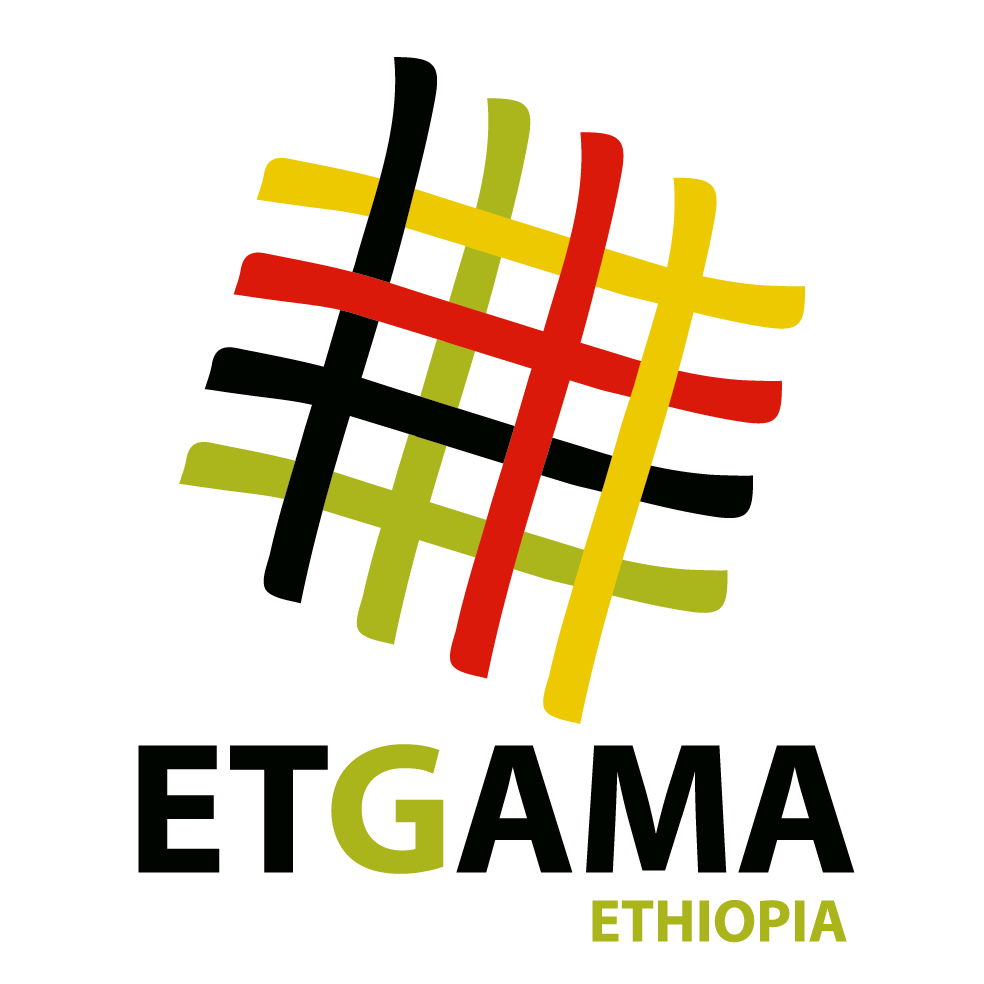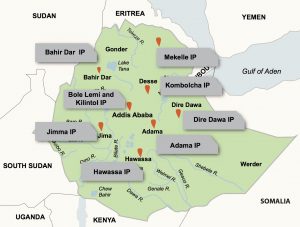Ethiopia traditionally has a lot to offer when it comes to textiles, starting with cotton cultivation. The domestic textile industry is medium-sized and offers opportunities for cooperation from yarn to  clothing. In the new industrial parks, investors from Asia in particular have built up ready-to-wear capacities. European entrepreneurs who want to get into business with Ethiopia still have to deal with infrastructure shortages and foreign exchange management.
clothing. In the new industrial parks, investors from Asia in particular have built up ready-to-wear capacities. European entrepreneurs who want to get into business with Ethiopia still have to deal with infrastructure shortages and foreign exchange management.
Fekadu Beyene Ayana, Consul General of the Democratic Federal Republic of Ethiopia, opened the conference and underlined in his greeting the special role of Germany as a trade and investment partner for Ethiopia, particularly in the textile sector.
Hotspot with question mark
Ethiopia’s textile industry clearly has potential – but is it usable in the short and medium term? Ulrich Binkert, GTAI travel correspondent for East Africa at Germany Trade & Invest, painted a realistic picture of the country at the Horn of Africa. “Work, land and energy are cheap. However, productivity is low, infrastructure is weak in many places, and many textile materials and ingredients need to be imported.” For Ethiopian companies, foreign exchange management is a major hurdle: purchasing products from abroad is extremely difficult for them. And the reports of armed conflicts in November are causing some investors to catch their attention. Nevertheless, Ethiopia is becoming more and more interesting for many buyers: free market access to Europe and the USA, the expansion of industrial parks, and the support of the Ethiopian government and international donors offer a favourable environment.
In the GTAI sector study “Ethiopia – The Textile, Clothing and Leather Industry” (2019), Ulrich Binkert summarizes facts and estimates. Available at www.gtai.de.
Sourcing and producing in Ethiopia
Industrial parks in Ethiopia with a textile focus. © Industrial Park Development Corporation of Ethiopia (IPDC)
Stephan Rehlen, long-term expert of Gesamtmasche as part of the project “Partner Africa Ethiopia”, has been supporting textile cooperations in Ethiopia and other African countries for more than 12 years. He therefore knows the textile value chain on site very well. He is convinced: “There is still a long way to go for Ethiopia’s textile industry, but the chances are good.” A positive trend could be determined by the export figures – albeit at a low level. The targeted establishment of international investors, the promotion of cotton cultivation and training to improve quality bear fruit. At the same time, European companies are looking for procurement alternatives to Asia. Ethiopia therefore offers good conditions, especially for standard cotton products. “Ethiopia is a cotton country,” emphasizes Stephan Rehlen. Because stack lengths and quality can be expanded – the cultivation conditions speak for this. The industry in Ethiopia is more than interested in German partners, from spinning to clothing. The port of Djibouti can be reached from Addis Ababa by truck or train in two days. The subsequent sea route to Hamburg Hafen .B then takes 17-18 days. For destinations in southern Germany, the route via Italian ports (12-14 days) is an alternative. For smaller shipments, air freight with Ethiopian Airlines is suitable. The line flies daily from Addis Ababa to Frankfurt. For flights to and from Africa, Addis is already hub No. 1.
Interested companies can contact Silvia Jungbauer (jungbauer@gesamtmasche.de) and Simone Louis (louis@gesamtmasche.de) or contact Stephan Rehlen (stephan.rehlen@rcf-consulting.de)directly.


 Even if the rail network is expanded, the running times within Ethiopia are still very long. Areas that do not have the appropriate connections to the rail network or to the capital through the industrial parks are struggling with poor roads and time losses when reloading. Hans-Hermann Bergmann of Meyer & Meyer Holding SE & Co. KG gave an assessment from the point of view of a logistics company: He considers it quite feasable to shorten the lead time to Europe to less than 20 days. Not only the duration, but also the security of the lead time is decisive for the scheduling. For this, it is important that quality controls, laboratory tests, warehousing and other services go hand in hand with transport services.
Even if the rail network is expanded, the running times within Ethiopia are still very long. Areas that do not have the appropriate connections to the rail network or to the capital through the industrial parks are struggling with poor roads and time losses when reloading. Hans-Hermann Bergmann of Meyer & Meyer Holding SE & Co. KG gave an assessment from the point of view of a logistics company: He considers it quite feasable to shorten the lead time to Europe to less than 20 days. Not only the duration, but also the security of the lead time is decisive for the scheduling. For this, it is important that quality controls, laboratory tests, warehousing and other services go hand in hand with transport services. Ethiopian business culture differs in many aspects from the German-European culture. Asmau Nitardy, Manager Eastern Africa at the Africa Association of German Business, gave important information on what to consider when dealing with Ethiopian business partners. Community, family, loyalty, faith and hospitality are central values in Ethiopia. A restrained and respectful relationship with each other is absolutely part of this. What doesn’t go down well is “better-knowing” appearance – or to want to get “to the essentials” too quickly. Ethiopians avoid open confrontation. If you push too quickly for promises, you have to expect positive answers out of sheer courtesy – and ultimately discuss everything again.
Ethiopian business culture differs in many aspects from the German-European culture. Asmau Nitardy, Manager Eastern Africa at the Africa Association of German Business, gave important information on what to consider when dealing with Ethiopian business partners. Community, family, loyalty, faith and hospitality are central values in Ethiopia. A restrained and respectful relationship with each other is absolutely part of this. What doesn’t go down well is “better-knowing” appearance – or to want to get “to the essentials” too quickly. Ethiopians avoid open confrontation. If you push too quickly for promises, you have to expect positive answers out of sheer courtesy – and ultimately discuss everything again.